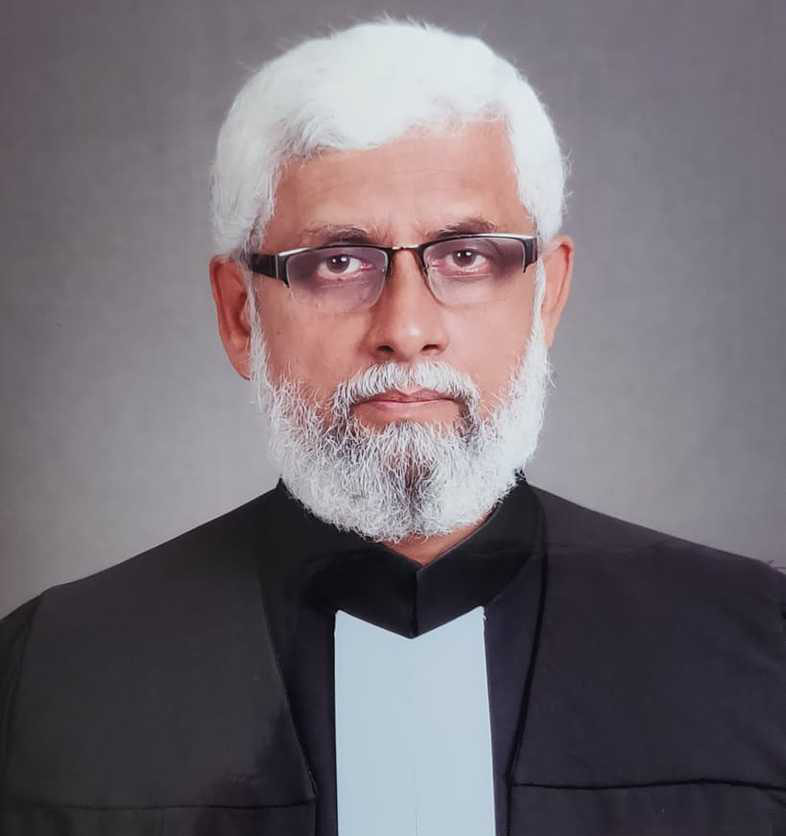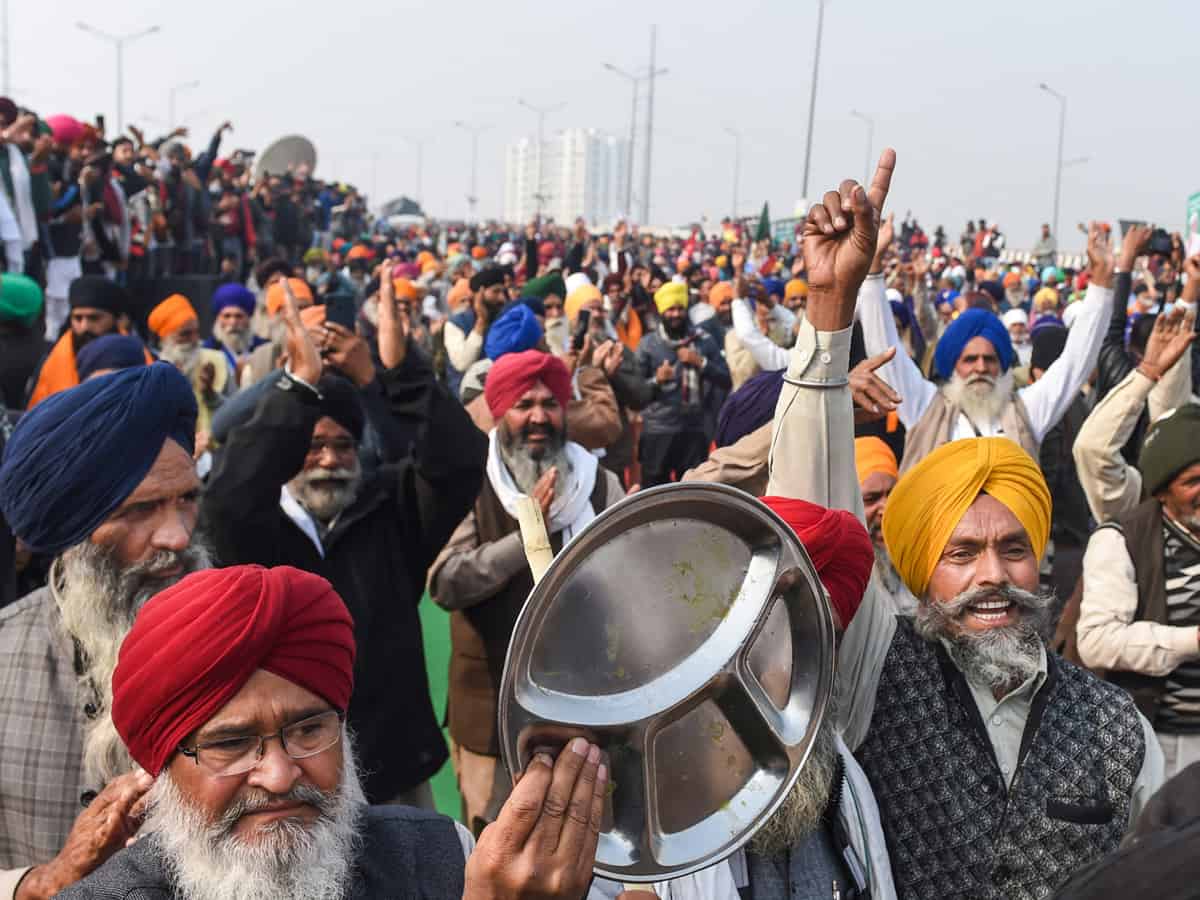
The government is alleged to have told many incorrect things, jumlas. Who do we citizens, bombarded as we are by an unending blizzard of noise, fake noise, and find ourselves in a situation where doublespeak is passé, multiple-speak is common, and every political figure adopts a stand that simply confronts and contradicts the other without regard for national interest, without regard for their own stands while either in government or opposition, without regard for the great responsibility they are carrying, or are supposed and required to carry, give credence to? Recently I read farmers got Re.1/- per kg of tomatoes. I read that Sant Ram Singh committed suicide. Today I read advocate Amarjit Singh committed suicide, complains also about the judiciary. They died “in support of the farmers”.
Whatever be the facts, farmers are on strike. It appears the UPA, Sharad Pawar as Agriculture Minister, set up three High Level Committees to make recommendations on reforms in the agriculture sector. Each group held meetings and finalised reports, and sent them to the PM Man Mohan Singh. ATRs were sought. Farmers had hardly any choice in marketing their produce, have to bring their produce to regulated agriculture mandis, monopoly institutions for sale of farm produce, near their villages. Absent credit and storage facilities, farmers made distress sales.
Mandis being of Government, private investment was not forthcoming for handling, storing, and transporting crops. Changes to bring in private sector investments for developing marketing infrastructure were felt necessary. Ministry of Agriculture circulated a Model Agricultural Marketing Law in 2003 for adoption by States. It provided for alternative marketing channels via establishment of private markets, contract farming and direct marketing and promotion of e-trading. State APMC Acts were to be amended as per the model. Automation of operations recommended as a system of automated mandis, connected with major consumption markets and also with ports in case of exportable commodities, for which massive investments in marketing infrastructure from private companies were suggested. No monopoly, including that of APMCs or corporate licensees, was to be allowed and markets where farmers could freely sell to consumers directly, were to be promoted. Dr Ashok Gulati, Chairman, CACP during UPA regime, Agri-Economists Suresh Pal, PCP Joshi, Meher Chand and Mahendradev all were apparently of the same view. Now a volte face by UPA, if the above is true, leaves the citizen non-plussed. What does he make of this?
Now, famers are willing to lay siege to the capital to force a rethink. They brave water cannon and blockades of roads. The government does not want an impossible-to-handle-without-violence situation on its hands so digs trenches across roads, blocks transport, barricades entry points. Why?
To prevent the protest from reaching where it will become a focus of media. Well, if a protest is in a not-in-the-eye-of-the-storm locale, it won’t cut much ice, will it? Is a right to protest a right that can be exercised where the protest will remain unseen? Is that not defeating the very objective of the protest?
Question: If farmers are to be benefited from the changes, why would they object? It appears Adani and others have built bulk farm produce storage facilities already, in preparation for this law. The allegation is that these people were tipped off about what the government would do, a la insider trading, and prepared facilities in advance for what was yet to come. The consequential unstated allegation is that this is a conspiracy between the big corporate honchos and the government servile to their interests, screwing up farmers’ rights selling its soul to corporate big guns to whom it has already parcelled out even those PSUs which were making profits. So, say the farmers, we no trust!
Question: if the UPA wanted to do exactly what NDA is doing, why is it now aligned with the farmers and goading them on to protest? Is the role of opposition in politics to simply oppose, or to ensure nothing harmful is done to citizens’ interests? Is it the job of the opposition to only oppose, or oppose only that which is inconsistent with national interest and citizens’ interest?
But we hear Adani built huge silos for storage…and Ambani is going to monopolise markets… Is it possible that these people had… uh, good advisors who, during the time of the UPA, when the NDA was probably doing the same oppose-everything-whatever-it-may-be, told them to read the writing on the wall and start preparing? How credible is it that the whole thing is a saazish against the citizens? Will we ever know? When the writing was on the wall, should there have been people reading between the lines there too?
If a law is made, and that law adversely impacts rights of any section, should there be (or, should there not be) a body within the judicial establishment monitoring emerging legislation to ensure it does not concoct a windfall for one section and impoverish or marginalise another? Why should an agitation become necessary in the presence of a judiciary? A vaccine is being made to inoculate everyone affected or not by COVID-19, whatever that is. The State does not want to wait till someone is infected. They want to pre-empt infections. Why? Prevention is better than cure. Can that not be extrapolated to rights-conflicts? Can a proactive judiciary not pre-empt litigation and protests by pre-notification vetting ensuring legislation passes constitutionality, fairness, colourable-exercise-of-power, mala-fide-exercise-of-power etc. tests before it is tossed at citizens?
What is the legal department for, one might ask. Well, considering the large-scale mistrust in the establishment, some disestablishmentarian thinking seems called for, to call out what needs to be culled out from legislative action.
Let’s try an exercise. Ask which channels speak positively of what government is doing, and which channels speak positively about what farmers and their supporters are doing : let us give credence to those channels which are awarded excellence awards by credible evaluating agencies (not the types that sell awards) and discount those that are discarded as noise-mongers and/or penalised for, among others, hate-speech. And while we are asking we can ask also which courts did what where when why because, what do we have? A tale. A tall one at that. Why?
Well, recently I wrote about a judge acknowledging that judgements are coloured by the predispositions that might plague judicial minds… and while on this, we read the Bombay High Court Division Bench (Justices TV Nalawade and MG Sewlikar, Aurangabad Bench) directed the State government to pay Rs.50,000 each towards compensation to Arun Tagad and Shailendra Tagad illegally detained in Beed District for six days in 2013 and observed that in such cases the State needs to obtain explanation from the erring authority and fix some kind of responsibility. Why the dilute “some kind of responsibility”? Why not attach assets of erring officials and compensate the citizen whose rights are violated from those assets? Citizens’ taxes are not to be used to pay for rogue officials’ private shenanigans.
Similar things happened, remember, in the aftermath of the 2007 Makkah Masjid blast… 20 young men… were any of them compensated? And now such is the state they don’t want to give evidence in their own cases. Why does this happen? Recently we read of an advocate’s office being raided. Was it a coincidence that he was handling cases defending people allegedly involved in Delhi “riots”? What exactly is meant by equality before, and equal protection of, the law?
If defenders of accused are susceptible to such “inconveniences”, and the general body of citizens, lawyers, political commentators, media representatives, Bar Councils, judicial officers, politicians all play spectator, do they have mental blocks?
The SC Bench December 17 apparently said farmers have right to continue protest so long as it is peaceful. The Bench, says the report (Livelaw News Network, 2020-12-27 12:15 GMT), added that police cannot instigate violence. One, so far as could be seen, Shaheen Bagh was peaceful too, until someone fired at the protesters. Two, why did the Bench think it necessary to “add” (same report) that “police cannot instigate violence”? What does that suggest?
If two divergent protests, against two divergent laws, generate two divergent responses, citizens reading between the lines can reach …well, divergent conclusions.
Jai Hind.
Shafeeq R. Mahajir is a well-known lawyer based in Hyderabad

